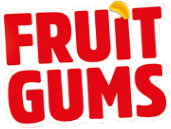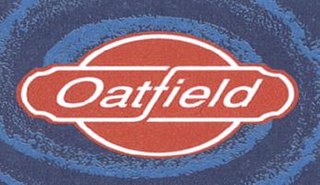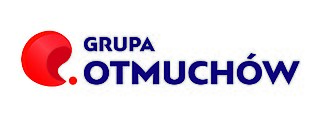
Confectionery is the art of making confections, or sweet foods. Confections are items that are rich in sugar and carbohydrates although exact definitions are difficult. In general, however, confections are divided into two broad and somewhat overlapping categories: bakers' confections and sugar confections.

Jelly Babies are a type of soft sugar jelly sweets in the shape of plump babies, sold in a variety of colours. They were first manufactured in Lancashire, England, in the nineteenth century. Their popularity waned before being revived by Bassett's of Sheffield in Yorkshire, who began mass-producing Jelly Babies in 1918.

Salty liquorice, salmiak liquorice or salmiac liquorice, is a variety of liquorice flavoured with salmiak salt, and is a common confection found in the Nordic countries, Benelux, and northern Germany. Salmiak salt gives salty liquorice an astringent, salty taste, akin to that of tannins—a characteristic of red wines, which adds bitterness and astringency to the flavour. Consuming salmiak liquorice can stimulate either a savoury or non-savoury palate and response. Anise oil can also be an additional main ingredient in salty liquorice. Extra-salty liquorice is additionally coated with salmiak salt or salmiak powder, or sometimes table salt.

Liquorice allsorts are assorted liquorice confectionery sold as a mixture. Made of liquorice, sugar, coconut, aniseed jelly, fruit flavourings, and gelatine, they were first produced in Sheffield, England, by Geo. Bassett & Co Ltd.

Wine gums, commonly known as gummies, are chewy, firm pastille-type sweets originating from the United Kingdom. All brands have their own recipes containing various sweeteners, flavourings and colourings. Wine gums are popular in the United Kingdom, Canada, Ireland, South Africa and many Commonwealth nations, as well as several European countries. Common brands include Maynards, Bassett's, Haribo and Lion.

Liquorice or licorice is a confection usually flavoured and coloured black with the extract of the roots of the liquorice plant Glycyrrhiza glabra.

Quality Street is a line of tinned and boxed toffees, chocolates and sweets, first manufactured in 1936 by Mackintosh's in Halifax, West Yorkshire, England. It was named after J. M. Barrie's play Quality Street. Since 1988, the confectionery has been produced by Nestlé. Quality Street has long been a competitor to Cadbury Roses, which were launched by Cadbury in 1938.

Nestlé UK Ltd., trading as Rowntree's, is a British confectionery brand and a former business based in York, England. Rowntree developed the Kit Kat, Aero, Fruit Pastilles, Smarties brands, and the Rolo and Quality Street brands when it merged with Mackintosh's in 1969 to form Rowntree Mackintosh Confectionery. Rowntree's also launched After Eight thin mint chocolates in 1962. The Yorkie and Lion bars were introduced in 1976. Rowntree's also pioneered the festive selection box which in the UK have been a staple gift at Christmas for over a century.

Love Hearts are a type of confectionery manufactured by Swizzels Matlow in the United Kingdom. They are hard, tablet-shaped sweets featuring a short, love-related message on one side of the sweet. They are an updated version of Victorian-era conversation lozenges.

George Bassett & Co., known simply as Bassett's, was an English confectionery company and brand. The company was founded in Sheffield by George Bassett in 1842. The company became a brand of Cadbury Schweppes in 1989. The brand's final owner was Mondelēz International, which merged the brand with Maynards to create Maynards Bassetts in 2016.

Rowntree's Fruit Gums are circular sweets formerly made by Rowntree's, who were later acquired by Nestlé. There are five flavours, each of a different colour: strawberry, orange, lemon, blackcurrant, and lime.

Oatfield was a chocolate and confectionery manufacturer located in Letterkenny, County Donegal, Ireland. The company was the oldest confectionery manufacturer in Ireland.
Sports Mix is a confectionery product manufactured in the UK under the brand-name of Maynards Bassetts, which is itself part of the Cadbury UK brand now owned by Mondelēz International and was formerly produced by Lion Confectionery. Both Maynards and Lion are owned by Cadbury UK, formerly Cadbury Trebor Bassett.

Sherbet is a fizzy, sweet powder, usually eaten by dipping a lollipop or liquorice, using a small spoon, or licking it from a finger.

Gummies, gummi candies, gummy candies, or jelly sweets are a broad category of gelatin-based chewable sweets. Gummy bears, Sour Patch Kids, and Jelly Babies are widely popular and are a well-known part of the sweets industry. Gummies are available in a wide variety of shapes, most commonly seen as colorful depictions of living things such as bears, babies, or worms. Various brands such as Bassett's, Haribo, Albanese, Betty Crocker, Hersheys, Disney and Kellogg's manufacture various forms of gummy snacks, often targeted at young children. The name "gummi" originated in Germany, with the terms "jelly sweets" or "gums" more common in the United Kingdom.
Maynards was a British confectionery manufacturer best known for manufacturing wine gums. It was acquired by Cadbury in the 1990s, which in turn was acquired by Mondelez International in 2010. In 2016, the brand was joined with Bassett's to create Maynards Bassetts.

Barratt is a confectionery brand in the United Kingdom, known for products including DipDab, Refreshers, Sherbet Fountain, Fruit Salad, Black Jack and Wham.

Maynards Bassetts is a UK brand of confectionery owned by Mondelez International, introduced in 2016. The brand was created to merge its existing Maynards and Bassett's brands, which the company came to own following its purchase of Cadbury in 2010.

Otmuchów Group is a corporate group of enterprises specialised in the food industry of confectioneries. The joint-stock company is registered on the Warsaw Stock Exchange. The headquarters of the dominating corporate unit is located in Otmuchów, Poland.

















